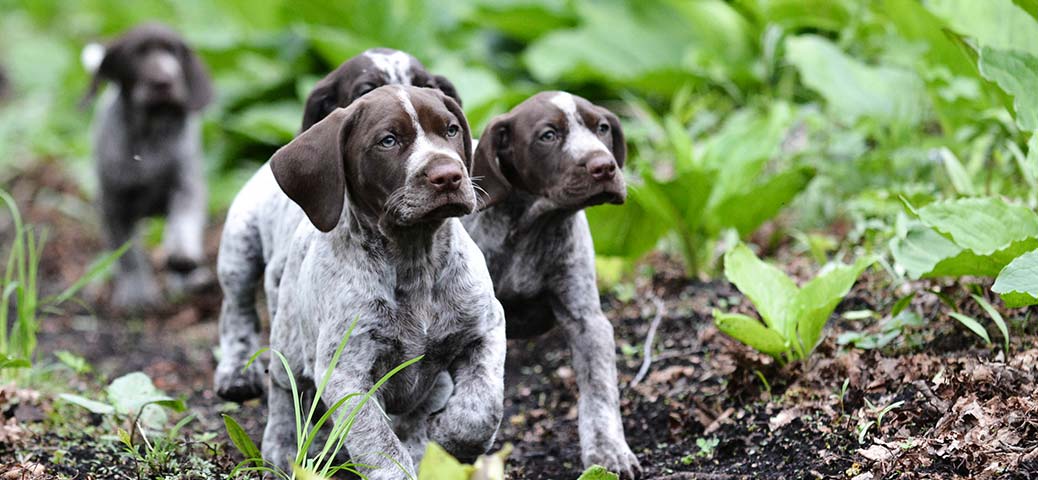Purebred dogs
Purebred dog breeders put a lot of time and money into ensuring their puppies are healthy. Careful records are kept with the pedigree of each dog and many breeders even go to the trouble of using artificial insemination from purebred dogs around the world to ensure their bloodlines stay strong and varied.
Do purebred dogs have better temperaments?
This is one of many ways in which purebred dogs are more predictable. When you get a crossbred dog you don’t know how it will turn out. In addition to health checks, responsible breeders make sure they use animals with good temperaments. Purebred dogs are just as loving and playful as any, but a predictable energy-level means you can find a dog that fits easily into your way of life.
Are purebred dogs healthier?
Crossbred dogs are unpredictable in many ways, including health and particular inherited diseases. Purebreds are tested for issues known to affect the breed, to make sure only healthy, fit dogs are used for breeding. Many diseases are being eradicated in this way. Crossing breeds creates a genetic lottery with un-known results that therefore cannot be tested for in advance.
Do purebred dogs make good house pets or are they just for showing?
Most dogs bred by responsible breeders are chosen to be much loved family pets. People choose purebred dogs because they can select a predictable pet that suits their lifestyle. When you hear the word purebred do you think of a Poodle with a lion clip? A hairless Chinese Crested Dog? Those “showie” breeds can make great pets, but don’t forget that predictable purebreds include Golden Retrievers, German Shepherd Dogs, Rottweilers, Jack Russell Terriers and Border Collies!
Are there non-allergenic purebred dogs?
There’s no such thing as a non-allergenic dog. Low-shedding dogs often don’t aggravate allergies because the dog is less likely to leave hair or saliva around the house. An individual can be allergic to any or all of these things. Puppies that are a cross of two or more breeds may or may not grow into a low-shedding adult dog. There is no guarantee because they do not “breed true” like a purebred. A litter of crossbred puppies may have some that shed and some that don’t whereas a litter of a recognised breed will have the same, predictable coat.
The following list is a good starting point when researching suitable breeds for an allergy-sufferer. However, as each person’s allergies can differ greatly, it is advised that you spend time with a breed prior to purchase to find out if you are able to tolerate that particular breed of dog. All dogs need a certain amount of brushing and combing and that, too, may be a difficult chore for an allergy sufferer.
Some breeds with low shedding coats include all sizes of poodles, Bichon Frise, Minature Schnauzer and several other terriers.

